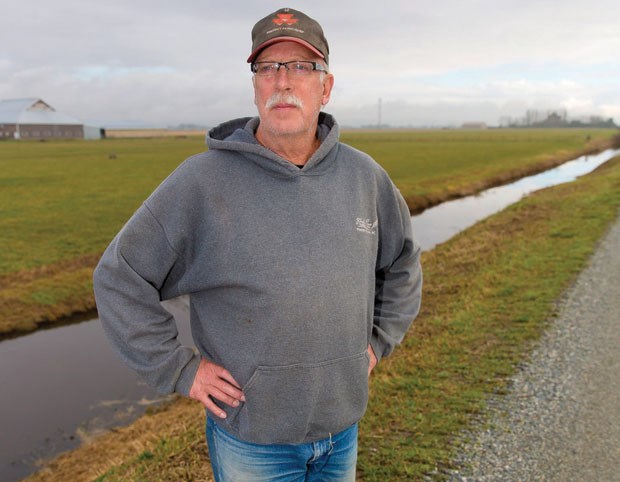With the PR referendum deadline fast approaching, a number of people have asked me my opinion on whether or not B.C. should switch to a system of proportional representation. I am happy to tell them that I will be voting to stay with the current first-past-the-post system.
It’s a system I understand, that has worked well to produce clear majorities. It also preserves local representation, which is vitally important to me.
South Delta is my home. I have lived on our family farm for my entire life — a circumstance that’s not uncommon in this community.My family has deep roots here, and we take a lot of pride in the contributions we make from both an agricultural and a personal perspective.
I also know this area like the back of my hand. Having lived here all my life, I could take you on a drive and tell you how this community has evolved over the past few decades. As a third-generation dairy farmer, I could tell you who owns each farm and what they grow.
Why does this matter? Because under a system of PR, you could have a representative who doesn’t hail from Delta. It could be someone from an entirely different postal code, who doesn’t know the city or the people who contribute to it. That lack of local knowledge could make for very poor advocacy and decision-making on your behalf.
We could see MLAs being “selected” from a party list, rather than “elected” by voters. You may, in fact, have more than one MLA in a riding that’s become drastically larger than it is now.
Trouble is, we’re not exactly sure what to expect because the government hasn’t done the best job of informing voters about the three PR options on the ballot.
Two of those three systems aren’t used anywhere else in the world. There are no riding maps or visual representations of what ridings could look like. There are at least 29 details that won’t be determined until after you’ve cast your vote — not to mention that the all-party committee that will make those decisions will be slanted in favour of the NDP and Greens.
It doesn’t need to be this way. When B.C. carried out its two previous referendums on electoral reform, voters were provided with much more information.
Preceding the 2005 referendum, we saw an independent Citizens’ Assembly take an entire year to review various systems and make recommendations. In 2009, we saw the addition of riding maps that clearly showed British Columbians how each constituency might look if we changed our electoral system.
But this time around, we’re being kept in the dark and asked to “take a leap of faith” and vote in favour of PR. To me, that’s not good enough.
My hunch is that the NDP is hoping for low engagement and low turnout to achieve the outcome that it and Greens are looking for — a change to a PR system. The Greens know PR will give them more seats in the legislature and the NDP wants to keep them happy so they will continue to prop them up in government.
It’s my view the government has unfairly rigged this process for political gain, and is rushing it along instead of giving voters an appropriate amount of time and detail to make an informed decision.
It’s disrespectful, and I will be voting against this effort by the NDP and its Green partners to derail democracy.



